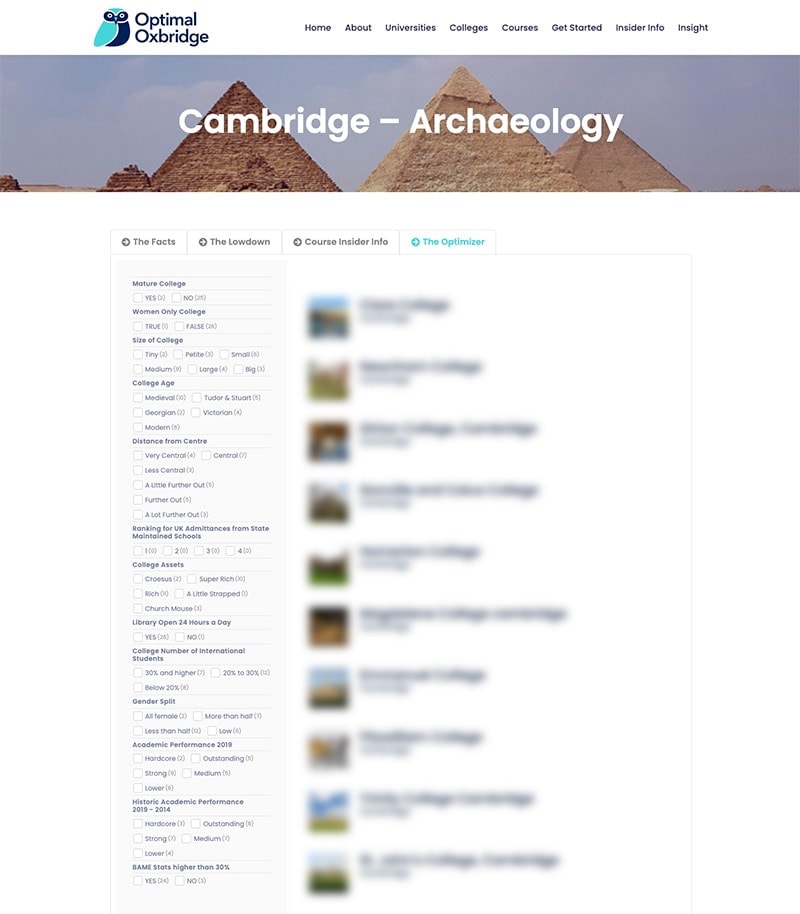Subscribe for full access to insider info and the optimizer.
Unlock access to the Optimizer and Insider Info
Let our optimizer help you find your college match faster. We’ll screen out the bad fits so that you can review the schools you’ll like best. Who knows? You might find a college you never knew existed.
The Facts
UCAS Code:
VT69
Standard Requirements:
A levels | AAA
IB | 38, 666 in HL
For other qualifications, check the Oxford University website.
Required Subjects:
None stated by the university.
Advisable Subjects:
None stated by the university.
A language, or a subject centered around essay writing
One piece of written work is required for the Religion and Oriental Studies course. This can be a recently graded work from school or college (or an examination answer to unseen material). The essay should be an example of Religious Studies work or a piece from a related topic. If you have not studied these subjects, an essay on any Humanities subject will be appropriate. The essays should not be more than 2000 words and should be submitted by 10 November 2022.
3 (62% interviewed, 33% successful)

The Lowdown
Studying a religion by reading its texts in its original language is especially satisfying and illuminating. This allows a student to fully understand the cultural and social traditions that are related to the religion. Students in the Religion and Oriental Studies course can tackle topics including the interrelation of science and religion, and the implication of religious ethics in daily life. Possibly the smallest course in the university with an annual intake of just 3 undergraduates over the last 3 years. A third of all applicants are successful, however, making it one of the less competitive courses although the University will not award places to inappropriate applicants.
In the first year, students follow the Religion and religions course. Students also study either Greek, Hebrew, Arabic, Tibetan, Hindi, Pali or Sanskrit. In the second and third years, students choose a world religion to study and a language which complements their chosen religion. For Christianity, you can choose between Greek and Hebrew; for Judaism, you study Hebrew; for Islam, you study Arabic; for Buddhism, you can choose from Pali (if available), Sanskrit or Tibetan; and for Hinduism, you study Sanskrit.
In the first year, students will have quite a few language classes, in addition to religion classes. Over the following two years, more emphasis is placed on studying religious texts in their primary languages. Students must also write a thesis on a topic of choice. This can be a religious topic, or a topic from Oriental Studies.
At A Level (or equivalent) it may be useful to study an essay-writing subject or a language.
Unlock Insider Info
Get insider intel about how to increase your chances of being offered a place, plus access interviews tips and special questions.
The Optimizer
Unlock access to the optimizer
Let our optimizer help you find your college match faster. We’ll screen out the bad fits so that you can review the schools you’ll like best. Who knows? You might find a college you never knew existed.

